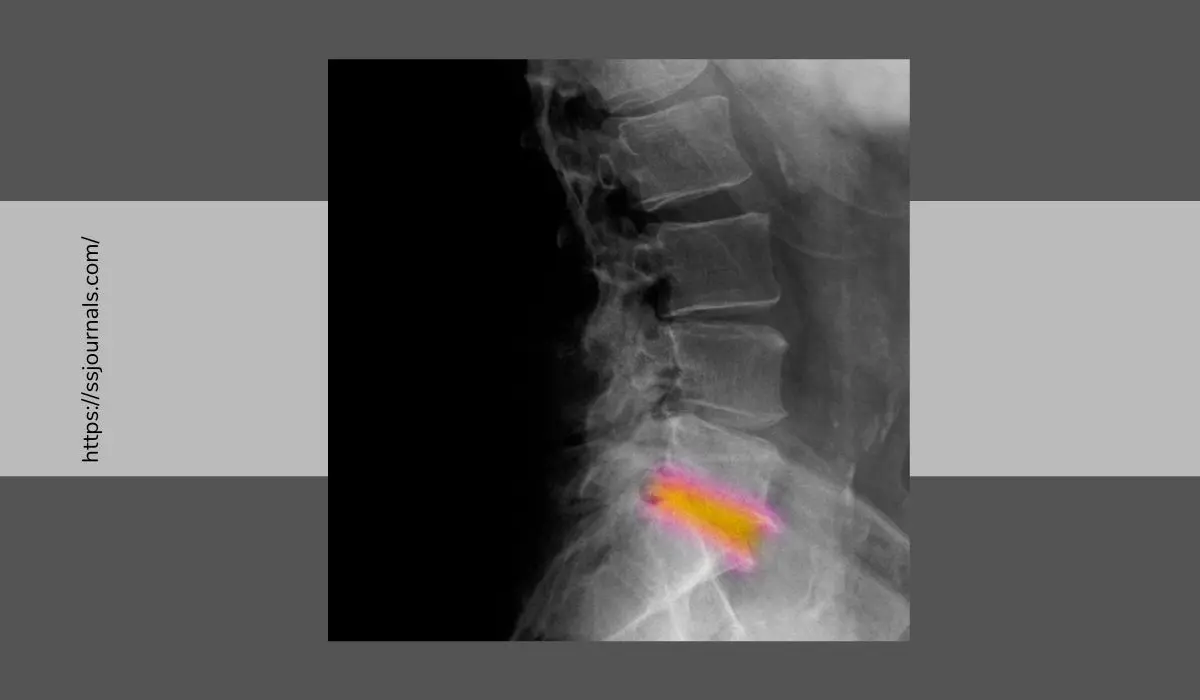Degenerative disc disease refers to age-related wearing down of the spinal discs that can result in chronic low back and neck pain. While there is no cure, avoiding certain activities and movements can help minimize symptoms.
Read on to learn what things you should avoid if you have been diagnosed with degenerative disc disease.
What Is Degenerative Disc Disease?

Degenerative disc disease is a common cause of back pain, especially in those over 40 years old. It occurs when the flexible discs between the vertebrae lose hydration and wear down over time. This leads to symptoms like:
➜ Stiffness and pain in the back or neck
➜ Numbness, tingling, or weakness in the arms or legs
➜ Reduced flexibility and range of motion
While disc degeneration is a natural part of aging, factors like injury, smoking, poor posture, and genetics accelerate it.
If you have degenerative disc disease, being careful to avoid certain movements and activities can help prevent painful irritation.
Activities To Avoid With Degenerative Disc Disease
Many everyday motions can compress or twist the spine in ways that aggravate degenerative discs. Avoid the following activities that often worsen back and neck pain:
◾️ High-Impact Exercise
Running/jumping – Jarring impacts transmit force through the spine. Low-impact cardio like swimming or the elliptical is safer.
Contact sports – Sports with collisions like football can damage discs. Focus on non-contact options.
Gym machines – Leg press machines, seated rows, and overhead lat pull-downs often aggravate disc issues over time.
◾️ Poor Lifting Technique
Bending from the waist when lifting – Use the power of your legs and keep the back straight.
Twisting while lifting heavy objects – Shift your feet instead of twisting your back.
Overhead lifting – Raise arms safely to shoulder level instead of overhead.
Carrying uneven loads – Distribute weight evenly between sides. Use backpacks or rolling carts.
◾️ Sustained Flexed Postures
– Slouching forward at a desk or while driving for long periods.
– Reading, texting, or watching TV in curled-up positions.
– Sleeping in a fetal position that puts pressure on the spine.
◾️ Repetitive Bending and Reaching
– Filing paperwork in bottom drawers. Use a cart to reduce bending.
– Gardening for extended periods. Kneel upright instead of bending over.
– Sweeping/vacuuming hunched over. Use an extendable duster.
◾️ Whole Body Vibration
– Off-road cycling/ATVs on bumpy terrain. Choose smoother surfaces when possible.
– Operating heavy machinery like tractors or construction equipment. Use ergonomic, shock-absorbing seats.
– Riding rollercoasters or speedboats that jar the spine.
Positions To Avoid With Degenerative Disc Disease
Maintaining the natural curves of the spine is key for protecting degenerated discs. Steer clear of positions that collapse the spine into flexion or extension like:
– Slumping when sitting for long periods.
– Sleeping on your stomach which extends the neck.
– Yoga poses like plow, shoulder stand, or wheel which are inverted or overextend the spine. Modify poses to maintain neutral spine alignment.
– Arching the lower back during weight lifting or dancing.
– Leaning over a bike that is too low. Raise your handlebars so you can ride upright.
– Reaching up high overhead which compresses the facets. Use a step stool.
– Crossing your legs which allows the pelvis to twist.
Focus on adjusting positions to keep the spine neutral without rounding or arching the back.
Everyday Activities To Modify Or Avoid
You don’t have to avoid normal activities completely. But paying attention to movements and postures that worsen pain helps guide any needed modifications:
◾️ Chores
– Fold laundry seated on a stool or with it placed on a table. Avoid bending over the basket.
– Wash dishes in a basin that allows you to stand upright.
– Split heavy lifting chores like laundry baskets or vacuuming into smaller, lighter tasks with rest breaks.
◾️ Exercise
– Prioritize low-impact, spine-friendly options like swimming, walking, or recumbent biking over running or jumping.
– Modify yoga to avoid poses that aggravate your condition.
– Strength train your core before limbs to better support the spine.
◾️ Travel
– Take frequent breaks to stand and stretch on long car rides.
– Use suitcases with long handles that eliminate bending over to carry them.
– If flying, request a bulkhead seat with more legroom.
– Sleep on your side in hotel beds rather than your stomach. Use pillows for support.
◾️ Work
– If at a desk, adjust your chair height and computer position to maintain good posture.
– Avoid extended slouching over electronic devices.
– Use carts and dollies to avoid lifting and bending.
Additional Tips To Prevent Disc Pain And Injury
Here are some other tips for protecting your discs:
– Maintain ideal body weight to reduce spinal loading.
– Manage chronic cough with medication to avoid pressured coughing.
– Quit smoking which accelerates disc degeneration.
– Watch your nutrition and supplement with vitamin D and anti-inflammatory foods.
– Use topical analgesics like menthol creams to ease back muscle tension and spasms.
– Adopt good posture when sitting, standing, and moving.
– Listen to your body and stop activities at the first twinge of pain before it escalates.
Warning Signs To Stop Activity Immediately
Seek prompt medical care if you experience:
– Loss of bowel or bladder function, indicating spinal cord compression
– Progressive weakness in the arms or legs
– Numbness in the groin or rectal area that continues for over an hour
– Unexplained fever indicating potential infection
– Severe or progressive neurological deficits
These red flags could signify a medical emergency requiring emergency spinal evaluation.
Frequently Asked Questions
Activities like heavy lifting, high-impact exercise, repetitive bending, sustained flexion, and spinal twists during activity are especially problematic for degenerative discs. Always maintain a neutral spine.
If degenerative disc disease impairs your ability to perform your occupational duties, Social Security Disability benefits may be warranted. Your doctor will need to fully document your diagnosis, symptoms, and functional limitations.
There is no cure for disc degeneration and the changes are irreversible. But anti-inflammatory medication, physical therapy, lifestyle modifications, and sometimes surgery can help manage symptoms to improve day-to-day function.
Cold packs can ease acute flare up pain from disc issues, while heat helps relax muscles that go into spasm from disc problems. Alternate hot and cold therapy for relief but avoid direct application over numb skin.
Seek emergency care immediately if you experience sudden severe back pain with concerning symptoms like limb weakness, bowel/bladder dysfunction, fever, or new neurological symptoms indicating spinal cord compression or infection.
Conclusion
Degenerative disc disease eventually affects most people as part of the natural aging process. While disc degeneration cannot be reversed, avoiding activities that aggravate your condition helps prevent or minimize painful flares.
Listen to your body, maintain proper spine alignment during daily activities, stay active with low-impact exercise, shed excess weight, and see your doctor promptly about any new concerning symptoms. With some lifestyle modifications and awareness of potential disc irritants, you can successfully manage degenerative disc disease.

